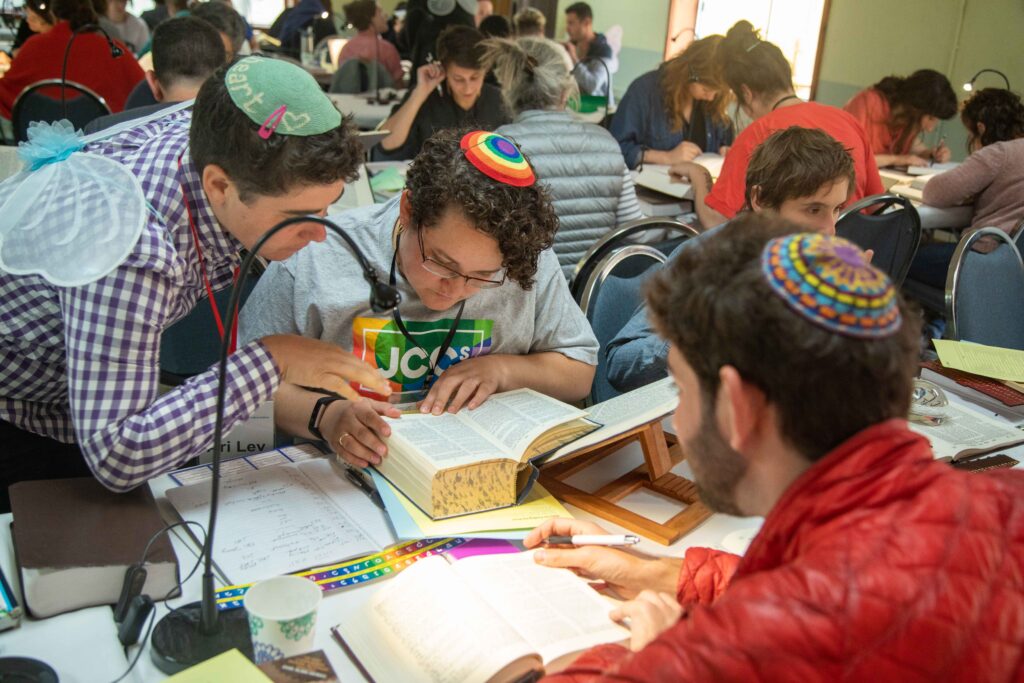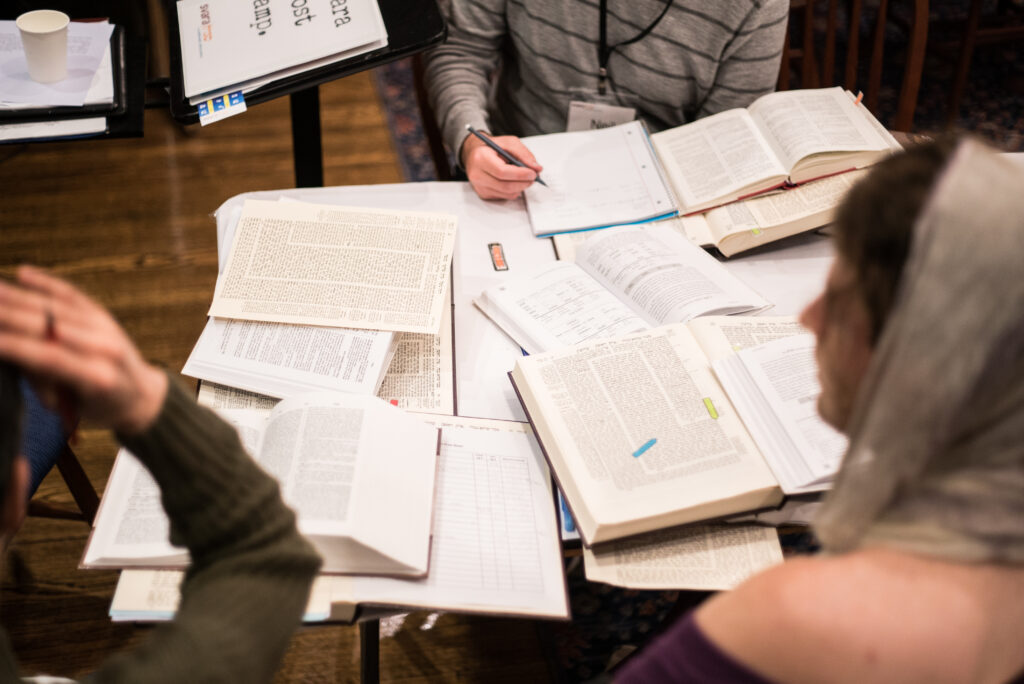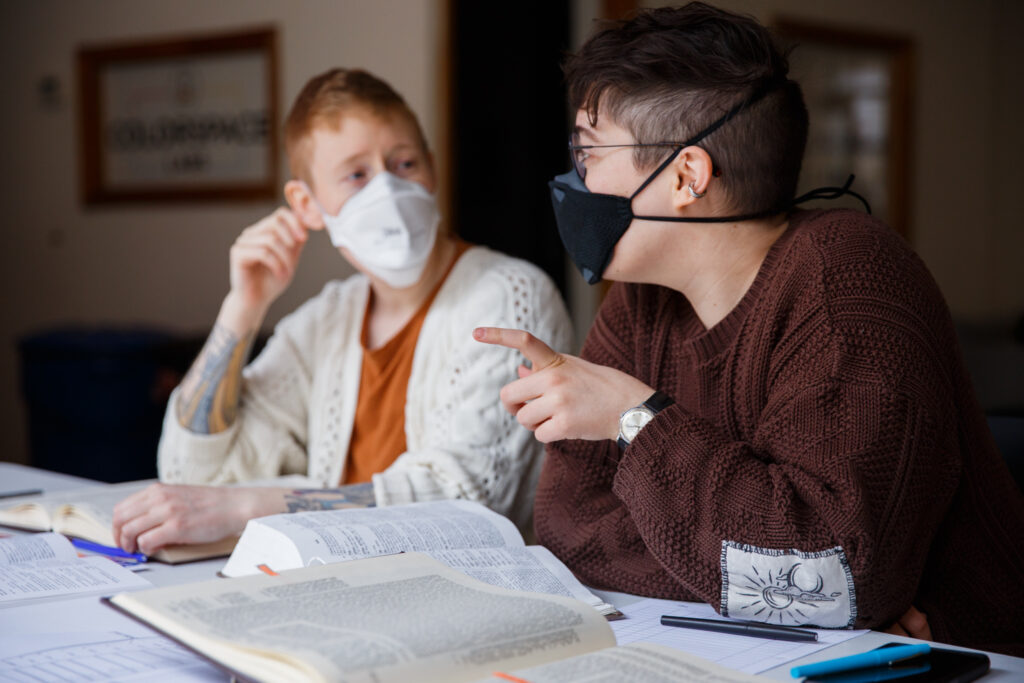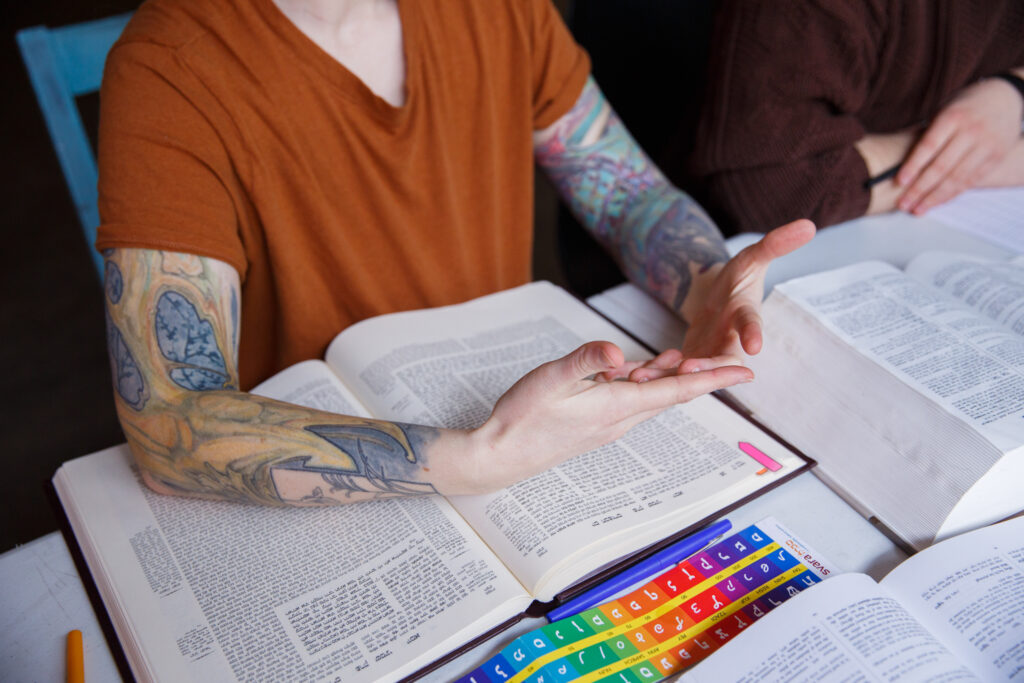I have been teaching in SVARA’s Mishnah Collective for the past few years. Every month, we inform our coordinator of our availability to lead the collective, and they assign us to the schedule accordingly. I love getting my assigned texts – it’s like a Mishnah Collective fortune cookie horoscope! Last Monday, I was assigned a rabbinic snippet that has guided my spiritual journey for decades (Mishnah Berachot 9:5):
חַיָּב אָדָם לְבָרֵךְ עַל הָרָעָה כְּשֵׁם שֶׁהוּא מְבָרֵךְ עַל הַטּוֹבָה
Inside translation:
Obligated is a person to bless upon the evil/bad/injurious, like name that they bless upon the good.
Outside translation:
A person is obligated to bless on account of the bad, just as they would bless on account of the good.
This poses a lot of pesky questions: Are the rabbis demanding that we praise awfulness? Are we being asked to engage in self-destructive thinking? Could this be a dangerous inroad to giving up on the fight for a just world? Great questions, which sent me whizzing down the Internetal info highway (a behavior I euphemistically call “research”) to dig more deeply into the rabbinic idea of obligation.
The first stop was the Jastrow dictionary definition of the root ח-ו-ב meaning: to be bound, incur guilt, be responsible; or as an adjective, which is how it is being used here: obligated. Next stop: Merriam Webster’s English dictionary (since 1828) entry for “obligate” which derives from the Latin participle obligare, “to tie up, restrain by tying, place under a legal or moral constraint”. I love discovering words in Hebrew that line up so perfectly with their English antecedents!
In my reverie, I pondered the physical act of binding as an “obligation”—this idea led directly to my most recent guilty pleasure, the epic Korean historical drama series “The Kings Affection” – a delicious mash-up of Yentl, The Corsican Brothers, plus a K-pop soundtrack, in which every possible expression of being bound/obligated/responsible and/or guilty is explored. The actress who plays the lead role, Park Eun-Bin, is utterly fantastic, so I followed that distraction with a perusal of her filmography. Knowing virtually nothing about Korean culture or history, I searched to find out more about the North/South conflict and landed on a page that compared many of the world’s conflictual schisms, civil wars, and other extremely unneighborly behavior, and of course, you know where that led.
I managed to accidentally-on-purpose start watching a bit prickly, but interesting YouTube conversation between Rudy Rochman and Noam Chomsky from 3 years ago. The video was rather long and as you can already tell, I have the attention span of a gnat, and next thing you know I got trapped in the briar patch of my search engine’s enticing algorithm. An hour later, I kinda came to, after a kaleidoscopic clickbait journey, watching a clip from the Tamron Hall show with Kitt Shapiro, Eartha Kitt’s daughter. Mind you, I am a contemporary mainstream culture ignoramus, but once upon a time, I loved Eartha Kitt (CATWOMAN extraordinaire, MEOW)! Tamron Hall deftly quizzed Kitt about her experience as a mixed-race daughter of a famous Black woman ‘60s superstar. Kitt talked about her mom’s courage, wisdom, and strength. She spoke about their close relationship as well as how she and Eartha did and did not look alike. She shared how that affected her sense of self. Kitt said she was questioned, doubted, mocked, harassed, distrusted, and a whole host of other unpleasantries based on her constellation of identities and the assumptions others imposed on her. She recounted that as a young woman, grappling with the blessings and curses of her multifaceted life, Eartha said to her, “You are either breaking the rules or filling the quotas.” Whoa! Did that ever resonate in my trans-pretty-much-everything heart: born female and gentile in a trailer park, now walking through the world as a Queer Jewish man living in a home I “own” in a “nice” neighborhood. Breaking every rule. Filling many-a-quota. How the hell did I get here? Like literally, how did I get from Jastrow to Kitt Shapiro?? The whole business made me dizzy…And then, BOOM! I remembered where this labyrinthian meandering began: We are obligated to bless everything.
The act of blessing is one of the great innovations that emerged out of the radical reconstruction of Judaism from a temple-based, hierarchical, primarily animal sacrificial cult to a transcendental culture. We, the people, are responsible for the act of blessing.
As the ancient sages, seers, and rabbis designed it, Jewish blessings follow a consistent form that, first and foremost, acknowledges the Source of everything. Every formal Jewish blessing begins with the phrase:
בָּרוּךְ אַתָּה יְהֹוָה אֱלֹהֵינוּ מֶלֶךְ הָעוֹלָם…
Baruch Atah Adnonai Eloheinu Melech Ha’Olam…
Blessed are You, Whateveryournameis, Our Divine power, ruler by which we measure eternity….
And every blessing ends with:
…who has done/made/commanded whatever one is about to enjoy, encounter, or endure: …fruit of the vine; the great sea; a painful loss; to kindle sacred flame.
To bless is to acknowledge, to admit, to recognize, to kneel before, and sometimes, to praise. It is a profound awareness practice designed to be immediate, portable, and personal.
And so, of course, we are obligated to apply that awareness to both the awful and the awesome, the deleterious and the delightful, the injurious and the inspirational. For certainly, if the ONE is indeed ONE, and we are a reflection of that ONEness, we are bound, tied to, inextricably linked—yes, obligated—to all that is good, bad, and indifferent. And while we are here in our human form, we experience those things as better or worse, desirable or contemptible, righteous or unjust. We see things through our very specific lens and we tend to pick and choose, sort and categorize, privileging the good and disparaging the evil. But our tripped-out ancient mystic makers, well, they didn’t want us to get stuck there, so they obligated us to step outside of our comfort zone and bless the whole mess.
Purim, I might argue, is a perfect drash on the Talmudic tidbit that we are obligated to bless evil right along with good. It is a tragicomedy that Cuisinarts our sensibilities, plays with our sensitivities, yanks our identity chains, and then pours a bucket of ice water down our naked backs. The poor Jewish orphan, Esther, becomes the most unlikely Queen in all of history. Her trajectory careens from docile street waif to aspiring concubine starlet, to a silent bystander, to outspoken royal, to a murderous revenge-seeking fireball of a queen. Similarly, her mentor, Mordechai, transforms from being a behind-the-scenes operator, to a political activist, to an honored journalist, to a bloodthirsty policy maker. Some people get drunk while others get sober. Jews fear the vigilante Shushanites who, when the tables turn, pretend to be Jews. It is a funhouse mirror that mocks our desire for a sanitized life and honors our lived messiness.
The rabbis dig into this roiling spiritual stew—they tell us that on Purim the spiritual goal is to drop all judgment, transcend every boundary, and inebriate ourselves to the point where we don’t know the difference between blessings and curses; to find ourselves in a mindset where hero and villain merge, where our spiritual barriers dissolve. They encourage us to drunkenly fall into a system of intersecting rabbit holes, encountering banality and brilliance along the way, letting ourselves lose all direction in our no-longer-confident search for meaning. It is terrifying and exhilarating.
When I reflect on my many blessings and injuries, I remember those precious and rare moments of having tasted the metallic sweetness of ecstatic grief–the full integration of self and other, life and death, what was and what will be. It is right there, when standing in front of the mirror of good and evil, that I’ve seen the blurry image of a perfectly imperfect God staring back at me, our face/faces/face streaked with snot and tears. It is in those exquisite moments that the impulse to bless everything becomes overwhelming–words tumble out involuntarily, obligating me to say: Blessed are You/you Oneness, my Oneness, who expands the Universe with unfathomable brokenness and incomparable beauty.







